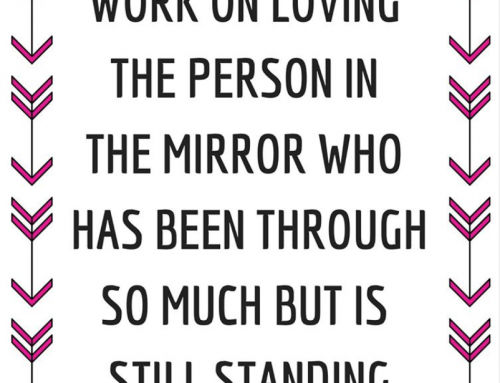And what to say instead…
First, I’ve heard disbelief. Denial.
I have heard questions along the lines of,
Aside from occasional disbelief, I’ve heard one question more than any other.
“Why didn’t you just leave?”
“I was around you at this time, why didn’t you tell me?”
“I should have noticed.”
“I feel terrible for not noticing. If I noticed maybe I could have helped.”
These are common reactions. Each person who reacted this way did so because it was the best way they knew how.
They love and care about me and tried to show support and understand the best way they could.
That is why I am writing this blog – is to help those who don’t know how to respond to understand better and know what to say (or not say) instead of what’s listed above.
Talking about abuse is surprisingly taboo in our culture, despite the popularity of tv series and movies blatantly showing physical and sexual violence. It’s like we’re so preconditioned to seeing it on television, that when we hear about it actually happening- we don’t know how to deal with it.
I think denial is a common response because
A. People don’t want to accept hard truths but rather continue like everything is FINE, (fear of the repercussions and potential retaliation or
B. Because of potential cultural or religious expectations of doing everything to make it work. (Being anti-divorce.) or
C. Because many people don’t understand the variety of ways a relationship can experience abuse, that it can be beyond physical.
There can be many other reasons.
Refer to this National Domestic Violence Hotline article to learn more here.
There are several kinds of abuse. Verbal, mental, emotional. physical, and financial, just to name a few. Abuse can be perpetuated by cultural or religious beliefs, co-dependency, fear, not knowing anything different and much more.
1. How to respond to someone who told you they’ve been in/are in an abusive relationship:
(Hint: It’s NOT reacting with disbelief or denial!)
If a close friend or family member has been courageous enough to open up to you about the truth of what’s happened/happening to them, it can be extraordinarily hurtful to hear you react in disbelief and denial. Sure, the information can come unexpected, and no one wants to accept that a person they care about has been hurt.
If someone has opened up, exposed their vulnerability and trusted you enough to talk about it, the best thing to do is:
Start by Believing and LISTEN.
If you have never been abused yourself, please don’t say “I understand.”
If you simply don’t know how to respond but want to be supportive, you can say just that:
“Honestly, I don’t know what to say, but thank you for trusting me enough to tell me.”
Express empathy. Refer to this video by Brene Brown to understand the differences.
Now that we’ve covered that, let’s move on to the most common question I’ve heard on this subject:
2. Why don’t (didn’t) you just leave the relationship?
If you’re tempted to ask this stop yourself right now.
There are so many reasons someone won’t or can’t leave an abusive relationship. Much of the time, fear is a big factor. When I left the abusive relationship I was in way back when, I was stalked and sent harassing text messages for almost 2 years after I left for good. I was sent messages such as,
“I know where you live. We’re going to end up together no matter what, wait and see.”
He was spotted loitering around my parents house on occasion, just to name a few things.
Much of the time women won’t or can’t leave for fear of their own lives or their children’s safety. Or their partner is so manipulative that she believes what he tells her, that she feels she isn’t able to survive without him- there’s a sense of emotional-codependency. Maybe he has contributed to her having such low self worth and believes everything he tells her. Maybe she’s financially dependent on him. Maybe she can’t leave due to her culturural upbringing or religious beliefs. There are so many factors to this that simply leaving isn’t always a viable option.
I would say that Listening is also the best case here. If you’re speaking to someone who has gone through this and gotten out of it- just listen.
If someone you know may be in danger, please refer them to the National Domestic Abuse Hotline
The Hotline has resources and a number to call for those who may be in immediate danger.
Click here for more info.
If the person is open to it, perhaps ask open-ended questions such as, “How can I help?,” and perhaps offer to read and do research together on The National Domestic Violence Hotline’s Website. There is a TON of valuable information on there.
Also, an incredible book that is a valuable resource is called,
‘Why Does He Do That?
Inside the Minds of Angry and Controlling Men.’
Get the book on Amazon HERE.
I hoped this blog helped shed some light on the inner workings of being in or surviving an abusive relationship.
*Also, if you’re in certain professions like teaching, coaching, medical and child care providers, there are laws in place mandating you to report abuse if the person confiding in you is in immediate danger. For more information about the professions and legal requirements please refer to this link HERE.
*Abuse can happen across all genders and relationships. It can happen male to male, female to female and also female to male too. Note that I write the male as the abuser and female as the victim of abuse due to my personal experiences.
Source: New feed




